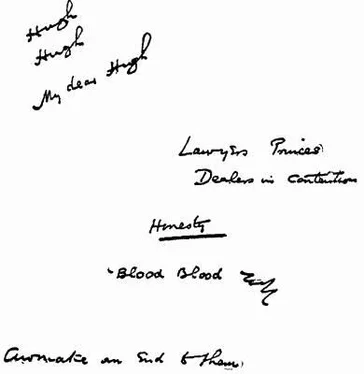Herbert Wells - Mr. Britling Sees It Through
Здесь есть возможность читать онлайн «Herbert Wells - Mr. Britling Sees It Through» весь текст электронной книги совершенно бесплатно (целиком полную версию без сокращений). В некоторых случаях можно слушать аудио, скачать через торрент в формате fb2 и присутствует краткое содержание. Жанр: Классическая проза, на английском языке. Описание произведения, (предисловие) а так же отзывы посетителей доступны на портале библиотеки ЛибКат.
- Название:Mr. Britling Sees It Through
- Автор:
- Жанр:
- Год:неизвестен
- ISBN:нет данных
- Рейтинг книги:4 / 5. Голосов: 1
-
Избранное:Добавить в избранное
- Отзывы:
-
Ваша оценка:
- 80
- 1
- 2
- 3
- 4
- 5
Mr. Britling Sees It Through: краткое содержание, описание и аннотация
Предлагаем к чтению аннотацию, описание, краткое содержание или предисловие (зависит от того, что написал сам автор книги «Mr. Britling Sees It Through»). Если вы не нашли необходимую информацию о книге — напишите в комментариях, мы постараемся отыскать её.
Mr. Britling Sees It Through — читать онлайн бесплатно полную книгу (весь текст) целиком
Ниже представлен текст книги, разбитый по страницам. Система сохранения места последней прочитанной страницы, позволяет с удобством читать онлайн бесплатно книгу «Mr. Britling Sees It Through», без необходимости каждый раз заново искать на чём Вы остановились. Поставьте закладку, и сможете в любой момент перейти на страницу, на которой закончили чтение.
Интервал:
Закладка:
"We had to punish the people," he said. "They had fired on us."
And besides, his officer had been drunk. It had been impossible to argue. His officer had an unrelenting character at all times....
Over and over again Mr. Britling would try to imagine that young schoolmaster soldier at Alost. He imagined with a weak staring face and watery blue eyes behind his glasses, and that memory of murder....
Then again it would be some incident of death and mutilation in Antwerp, that Van der Pant described to him. The Germans in Belgium were shooting women frequently, not simply for grave spying but for trivial offences.... Then came the battleship raid on Whitby and Scarborough, and the killing among other victims of a number of children on their way to school. This shocked Mr. Britling absurdly, much more than the Belgian crimes had done. They were English children. At home!... The drowning of a great number of people on a torpedoed ship full of refugees from Flanders filled his mind with pitiful imaginings for days. The Zeppelin raids, with their slow crescendo of blood-stained futility, began before the end of 1914.... It was small consolation for Mr. Britling to reflect that English homes and women and children were, after all, undergoing only the same kind of experience that our ships have inflicted scores of times in the past upon innocent people in the villages of Africa and Polynesia....
Each month the war grew bitterer and more cruel. Early in 1915 the Germans began their submarine war, and for a time Mr. Britling's concern was chiefly for the sailors and passengers of the ships destroyed. He noted with horror the increasing indisposition of the German submarines to give any notice to their victims; he did not understand the grim reasons that were turning every submarine attack into a desperate challenge of death. For the Germans under the seas had pitted themselves against a sea power far more resourceful, more steadfast and skilful, sterner and more silent, than their own. It was not for many months that Mr. Britling learnt the realities of the submarine blockade. Submarine after submarine went out of the German harbours into the North Sea, never to return. No prisoners were reported, no boasting was published by the British fishers of men; U boat after U boat vanished into a chilling mystery.... Only later did Mr. Britling begin to hear whispers and form ideas of the noiseless, suffocating grip that sought through the waters for its prey.
The Falaba crime, in which the German sailors were reported to have jeered at the drowning victims in the water, was followed by the sinking of the Lusitania . At that a wave of real anger swept through the Empire. Hate was begetting hate at last. There were violent riots in Great Britain and in South Africa. Wretched little German hairdressers and bakers and so forth fled for their lives, to pay for the momentary satisfaction of the Kaiser and Herr Ballin. Scores of German homes in England were wrecked and looted; hundreds of Germans maltreated. War is war. Hard upon the Lusitania storm came the publication of the Bryce Report, with its relentless array of witnesses, its particulars of countless acts of cruelty and arrogant unreason and uncleanness in Belgium and the occupied territory of France. Came also the gasping torture of "gas," the use of flame jets, and a new exacerbation of the savagery of the actual fighting. For a time it seemed as though the taking of prisoners along the western front would cease. Tales of torture and mutilation, tales of the kind that arise nowhere and out of nothing, and poison men's minds to the most pitiless retaliations, drifted along the opposing fronts....
The realities were evil enough without any rumours. Over various dinner-tables Mr. Britling heard this and that first-hand testimony of harshness and spite. One story that stuck in his memory was of British prisoners on the journey into Germany being put apart at a station from their French companions in misfortune, and forced to "run the gauntlet" back to their train between the fists and bayonets of files of German soldiers. And there were convincing stories of the same prisoners robbed of overcoats in bitter weather, baited with dogs, separated from their countrymen, and thrust among Russians and Poles with whom they could hold no speech. So Lissauer's Hate Song bore its fruit in a thousand cruelties to wounded and defenceless men. The English had cheated great Germany of another easy victory like that of '71. They had to be punished. That was all too plainly the psychological process. At one German station a woman had got out of a train and crossed a platform to spit on the face of a wounded Englishman.... And there was no monopoly of such things on either side. At some journalistic gathering Mr. Britling met a little white-faced, resolute lady who had recently been nursing in the north of France. She told of wounded men lying among the coal of coal-sheds, of a shortage of nurses and every sort of material, of an absolute refusal to permit any share in such things to reach the German "swine." ... "Why have they come here? Let our own boys have it first. Why couldn't they stay in their own country? Let the filth die."
Two soldiers impressed to carry a wounded German officer on a stretcher had given him a "joy ride," pitching him up and down as one tosses a man in a blanket. "He was lucky to get off with that."...
"All our men aren't angels," said a cheerful young captain back from the front. "If you had heard a little group of our East London boys talking of what they meant to do when they got into Germany, you'd feel anxious...."
"But that was just talk," said Mr. Britling weakly, after a pause....
There were times when Mr. Britling's mind was imprisoned beyond any hope of escape amidst such monstrous realities....
He was ashamed of his one secret consolation. For nearly two years yet Hugh could not go out to it. There would surely be peace before that....
§ 7
Tormenting the thought of Mr. Britling almost more acutely than this growing tale of stupidly inflicted suffering and waste and sheer destruction was the collapse of the British mind from its first fine phase of braced-up effort into a state of bickering futility.
Too long had British life been corrupted by the fictions of loyalty to an uninspiring and alien Court, of national piety in an official Church, of freedom in a politician-rigged State, of justice in an economic system where the advertiser, the sweater and usurer had a hundred advantages over the producer and artisan, to maintain itself now steadily at any high pitch of heroic endeavour. It had bought its comfort with the demoralisation of its servants. It had no completely honest organs; its spirit was clogged by its accumulated insincerities. Brought at last face to face with a bitter hostility and a powerful and unscrupulous enemy, an enemy socialistic, scientific and efficient to an unexampled degree, it seemed indeed to be inspired for a time by an unwonted energy and unanimity. Youth and the common people shone. The sons of every class went out to fight and die, full of a splendid dream of this war. Easy-going vanished from the foreground of the picture. But only to creep back again as the first inspiration passed. Presently the older men, the seasoned politicians, the owners and hucksters, the charming women and the habitual consumers, began to recover from this blaze of moral exaltation. Old habits of mind and procedure reasserted themselves. The war which had begun so dramatically missed its climax; there was neither heroic swift defeat nor heroic swift victory. There was indecision; the most trying test of all for an undisciplined people. There were great spaces of uneventful fatigue. Before the Battle of the Yser had fully developed the dramatic quality had gone out of the war. It had ceased to be either a tragedy or a triumph; for both sides it became a monstrous strain and wasting. It had become a wearisome thrusting against a pressure of evils....
Читать дальшеИнтервал:
Закладка:
Похожие книги на «Mr. Britling Sees It Through»
Представляем Вашему вниманию похожие книги на «Mr. Britling Sees It Through» списком для выбора. Мы отобрали схожую по названию и смыслу литературу в надежде предоставить читателям больше вариантов отыскать новые, интересные, ещё непрочитанные произведения.
Обсуждение, отзывы о книге «Mr. Britling Sees It Through» и просто собственные мнения читателей. Оставьте ваши комментарии, напишите, что Вы думаете о произведении, его смысле или главных героях. Укажите что конкретно понравилось, а что нет, и почему Вы так считаете.






